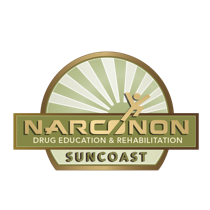A Parents Guide to Addiction: Plan of Action

There are no words to explain how difficult it can be to watch a loved one struggling with addiction. This is especially true when it is a parent having to watch their child struggle. As a parent, you try to always keep your child’s best interests in mind, no matter what stage of life they are in. This makes it heartbreaking to have to watch your child continue to harm themselves through addiction.
When parenting a child struggling with addiction, it can be tough to know how to handle the situation best. That’s why we’ve put together some principles below that can help guide you through this time.
Invite Open Conversation with Your Addicted Child
One of the first things you can try to do with your addicted child is to invite open conversation. When you first begin to notice signs of addiction, opening a dialogue with your child can help to maintain communication rather than ignoring the problem.
You can begin the conversation by discussing how things are going and the difficulties they are dealing with and progress into the conversation about drugs or alcohol. Focus on understanding and showing compassion, but also talk to them about the unhealthy consequences of substances and addiction.
Moreover, try to limit severe or simply angry conversations, as these can lead to your pushing your child away or them leaving the conversation.
Set Boundaries for the Addict Child
Unfortunately, your addicted child may end up pushing limits, such as asking to borrow money, acting out at gatherings, or engaging in other less-than-ideal behavior. This means that you need to set some boundaries with them for what is and is not acceptable. Setting boundaries can be difficult at first, but it is important to protect yourself and provide clear limits for your child.
Don’t Enable Their Addiction
Of course, you will want to help your child with their addiction as much as possible. However, it is important to keep this in check and not enable them. Enabling essentially means engaging in behavior that supports or assists your child’s addiction. This can be things like giving them money, covering for their actions, making excuses for them, and much more. This may feel like you are helping your child, but it is only showing them that they can get away with their actions, and you will help them do so.
Create a Plan for Treatment Options
In many cases, a residential treatment center will be one of the most effective options to help your child. This is where the addicted individual will stay at the center while they receive treatment. It’s important to have a plan for treatment in place before approaching your loved one.
Our staff can help you make the necessary arrangements and create a straightforward plan of action for getting them into treatment. Having everything in place can make the entire process much more streamlined.
Holistic Treatment for Alcohol or Drug Addiction
Narconon offers an effective holistic treatment program that can help you or your loved one overcome addiction. We know how challenging addiction can be, but we can help you through the recovery journey. Our program has helped thousands of people overcome addiction, and it can do the same for you or your loved one.
If you have any questions about our program, please contact us or fill out our contact form.
